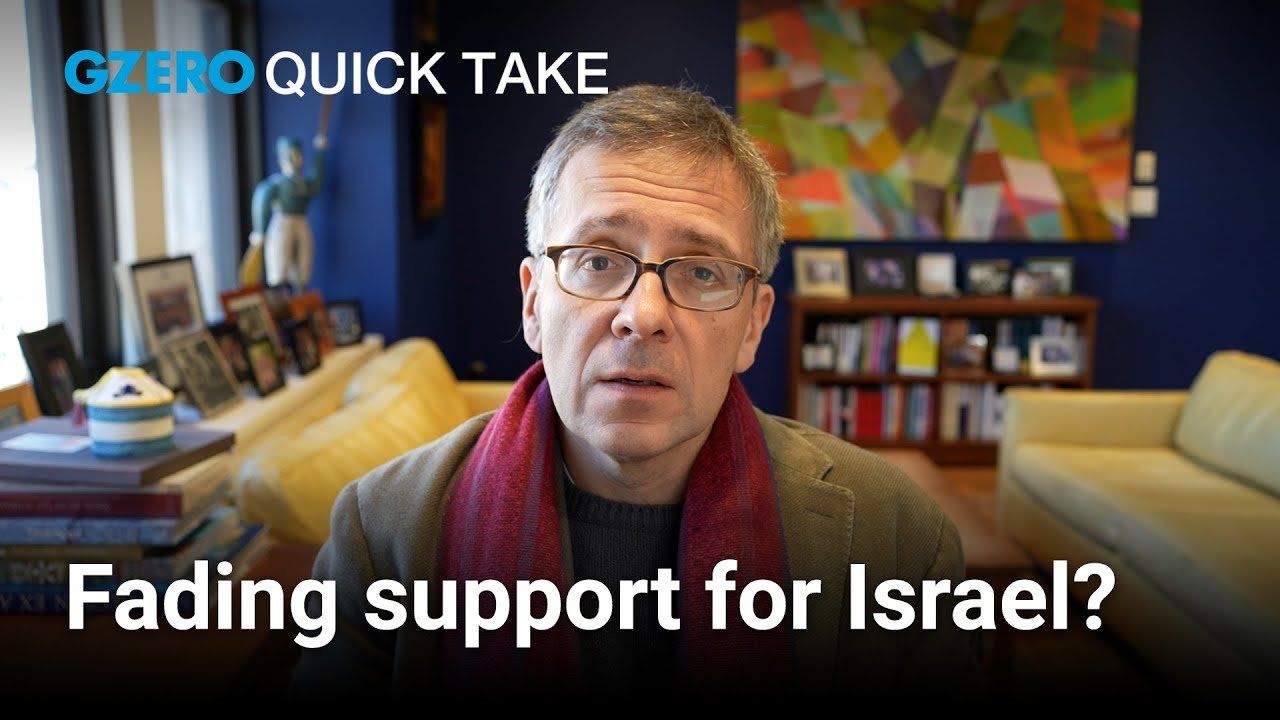
Ian Bremmer's Quick Take: Hi, everybody. Ian Bremmer here and a Quick Take to kick off your week. Of course it is the Middle East that we are first and foremost exercised about. Not the biggest topic in Europe for the Munich Security Conference. That was Navalny and Russia and Ukraine. But back in the United States and for most of the rest of the world, it is still the Middle East.
And that is in part because there is less optimism about an imminent deal on the remaining hostages, which has led the Israeli government to step up the pressure, saying if you don't give all of the hostages back, in short order, that they're going to engage in ground warfare against Rafah, where over a million Palestinians are sheltering, if we can call it that, having already been resettled from other parts in the rest of Gaza, and they have nowhere to go.
The Americans are deeply concerned about this. And that's why you see the United States shifting towards support of a Security Council resolution that would call for a temporary cease fire. Now, that's not all that much a temporary cease fire and it's, you know, not necessary really going to lead the Israelis to take a different position. But it does show frustration, public frustration from the Biden administration that the war is not going where they want, that it continues to see massive amounts of civilian casualties.
And the Israeli government isn't listening to their quiet pressure. Of course, that's causing difficulties for Biden at home during an election year. I also see the Israelis pushing on Rafah because they are hoping that that's going to force Hamas into a more acceptable deal on how many hostages are freed, with how many Palestinian prisoners they have to give up, all of that stuff. But if it doesn't work, of course, that means that the pressure on Netanyahu and the Israeli war cabinet to go in to Rafah with tanks, with troops, with far more civilian casualties, far more pressure on the Palestinians to get the hell out, no matter the consequences. Some getting into Egypt, potentially breaking the Egypt-Israel peace deal. You also see that with the Saudis, who publicly are saying there's no chance that they are willing to engage in a breakthrough normalization of diplomatic relations with the Israelis as long as Netanyahu is in power, as long as there's no two-state solution, as long as there are any Israeli troops on the ground in Gaza, that is considerably more pessimistic than they were even a few weeks ago. So the general travel of this conflict continues to be negative and towards escalation, towards more conflict across the region.
We also see that in West Bank. We also see that with the skirmishing and the missiles going from Israel into Lebanon, from Lebanon and Hezbollah into Israel. Look, I am still, on balance optimistic that a deal is going to get done, but that deal is not going to end the fighting. It's a temporary reprieve that will allow the Americans and others to do everything they can to try to extend the cease fire, to try to create conditions for political and security, you know, leadership on the ground in Gaza.
I think the ability to stick that landing is virtually zero. The other thing that's happening is Israel is getting more isolated. The Europeans continue to support Israel, but they're under the same pressure that Biden administration is. Their youth are just as angry at what's happening on the ground and just as supportive of the Palestinians as they are in the United States. That surprised a lot of European leaders I spoke with last week, especially the Germans who have been very outspoken in their support for Israel and are feeling a lot of pressure from their domestic constituencies to dial that back. And then you see the rest of the world where Israel is increasingly isolated. That was reflected with President Lula from Brazil, who compared the war in Gaza to the Holocaust.
It's an appalling comparison. No matter what you think about the war in Gaza, this was Hitler trying to kill, trying to exterminate the Jews with millions dead and Israel is calling Lula persona non grata. They're demanding an apology. I hope that he will give one. But the broader point here is that what Lula is saying publicly is what a lot of leaders from the Global South have a sentiment privately. They believe this is a genocide being committed against the Palestinians. They are angry with the Israelis. They feel like everything needs to be done to stop the fighting, that they're acting with impunity, that they're the villain, they're the bad guy. And this is, again, only a few months after the acts of October 7th, the Israelis, from my perspective, have lost the information war globally and they've lost the political support from a majority of the world's governments around the world. They never had that strongly, but they had opportunities. Certainly they were in a stronger geopolitical position before October 7th. They really aren't now and Lula's announcements, intemperate announcements reflect that change.
That's it for me. And I'll talk to you all real soon.